Jakarta, MINA – Imaam Jama’ah Muslimin (Hizbullah) KH. Yakhsyallah Mansur hopes that Palestine Trilogy book can enrich the literacy and knowledge of Indonesian society about Palestine and Al-aqsa Mosque.
This was conveyed by Imaam Yakhsyallah Mansur during a visit and meeting with the Head of Naval Mental Development Office (Kadisbintalal), Brigadier General TNI (Mar) Sandy M. Latief, S.IP in Jakarta on Thursday.
The Palestine Trilogy book was written by Imaam Yakhsyallah Mansur and Al-Quds Ambassador Ali Farkhan Tsani and the title is “Pembebasan Al-Aqsha Kewajiban Kaum Muslimin”, “Bumi Palestina Milik Bangsa Palestina”, dan “Hubungan Indonesia-Palestina”.
“We hope the Palestine Trilogy can enrich reading literacy of Indonesian society about Palestine,” said Imaam Yakhsyallah.
Also Read: MUI Warns Government of Risks Behind Proposed Stabilization Force Deployment to Gaza
He added, the Palestine Trilogy contains much information about Palestine that os rarely known by Indonesian, including the historical ties between Indonesian and Palestinian that date back along before the independent.
“During its golden era, the Ottoman Empire once sent its naval troops to Aceh, and it turned out that these troops were from Palestine. This resulted in the birth of Indonesia’s first female naval figure, Admiral Malahayati, who successfully killed Cornelis de Houtman and Frederik de Houtman. “Her (Malahayati’s) teacher was Palestinian,” he said.
Imaam Yakhsyallah added that the relationship between Indonesia and Palestine did not stop there. One example is the construction of the Al-Aqsa Mosque, also known as the Menara Kudus Mosque, in Kauman Village, Kota District, Kudus Regency, by Jafar Shadiq, also known as Sunan Kudus, in 1549 AD.
“Kudus is quite special. There are at least three aspects that connect Kudus to Palestine. First, the existence of the Al-Aqsa Mosque, or the Menara Kudus Mosque, built by Sunan Kudus. In several forums, I often mention that Indonesia is the only country outside Palestine that has an Al-Aqsa Mosque,” he said.
Also Read: Prof. El-Awaisi: The Mandate to Liberate Al-Aqsa Began at Prophethood
“Second, Mount Muria, which is actually named after a hill in Palestine. To commemorate his homeland, Sunan Kudus named the hill Mount Muria. Third, the birth of Wasatiyah Islam, or what is now known as moderate Islam, which actually originated from the teachings of Sunan Kudus. Sunan Kudus himself came from Palestine,” he added.
Regarding Wasatiyah Islam, Imaam Yakhsyallah gave an example, saying that Sunan Kudus once taught the people there not to sacrifice cattle during Eid al-Adha (the Festival of Sacrifice). This was done to respect the Hindu community.
“In Kudus, even today, it is forbidden to sacrifice cattle, but buffaloes are allowed. This is to honor the Hindu community. Sunan Kudus’ action, in the terms of Usul Fiqh, can be described as thariqatul jam’i, a method of reconciling two seemingly conflicting things. So, the sacrifice remains valid, while at the same time, the Hindu community is not offended,” he explained. (T/RE1/P2)
Mi’raj News Agency (MINA)
Also Read: Mount Semeru Erupts, Trapping Dozens, Forcing Evacuations in East Java






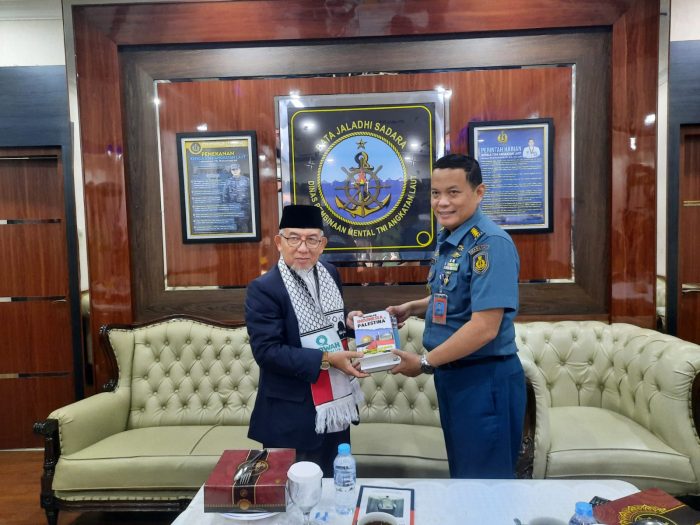




![Israeli tanks and APC’s gather by the Israeli – Lebanese border. Amid Israel’s escalating campaign against Hezbollah in Lebanon on September 30, 2024. [Erik Marmor/Getty Images]](https://en.minanews.net/wp-content/uploads/2024/10/IMG_20241001_203226-300x197.jpg)




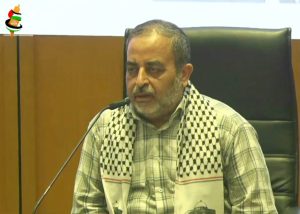
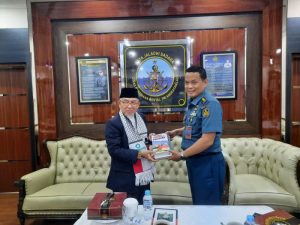

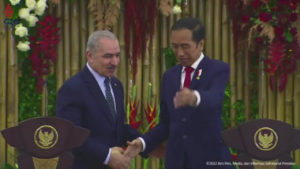
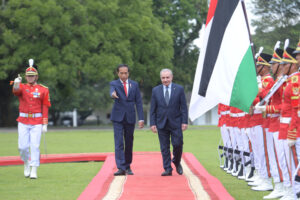














 Mina Indonesia
Mina Indonesia Mina Arabic
Mina Arabic